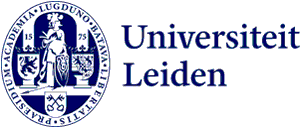
‘Teach young people to take control of technology’
Technology is spreading its tendrils into the classroom. But who is in control? In her inaugural lecture, Professor Nadira Saab calls for ‘digital agency’. This means teaching teachers and young people to be critically aware of technologies such as chatbots and algorithms, rather than being controlled by them.
Technology offers unprecedented opportunities and is rapidly changing education. Chatbots give feedback on assignments, digital platforms like Google Classroom follow children’s every move, and algorithms decide what they get to see. ‘If you understand how systems work, you can control them,’ says Saab. ‘Digital agency means you decide what you learn, create and share.’
It is more than digital skills or media literacy alone. ‘Pupils need to learn to take responsibility for their online behaviour. They need to know not only how technology works but also when they should or shouldn’t use it.’
‘Some parents can’t afford expensive laptops or are digitally illiterate’
Teachers in the driving seat
Teachers play a key role, says Saab. They constantly need to think: Does this technology actually further learning and development? Is this digital platform – a gamified language learning tool, for example – really an educational asset? And does that popular teacher on YouTube really explain the subject best for pupils who have fallen behind? ‘An algorithm sees numbers, but a teacher sees the child behind the data,’ says Saab. Teachers should also have extensive digital and pedagogical reasoning skills. Teacher training can make a difference by offering not only technical knowledge but also space for ethical and pedagogical reflection.
Technology as a means, not an end
Saab can also see opportunities. Technologies like virtual reality and artificial intelligence can benefit education when used consciously and responsibly. VR makes learning lifelike, while chatbots and learning systems can support pupils by providing feedback. However, Saab warns that this makes it important to learn how to use them. Technology should support learning, not lead it. Human control and pedagogical judgment remain essential.
Equal opportunities
Saab warns of inequity in the digital society, ‘Some parents can’t afford expensive laptops or are digitally illiterate. Schools should be aware of this. Without equal access, the digital gap will only grow. Those who learn to be critical and aware of technology will continue to do so later. Only then will we build a digital future in which humans, rather than technology, decide what direction we take.’
